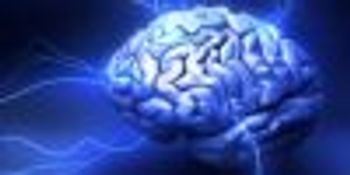
This potentially serious condition is only partially understood, and its triad of symptoms often goes unrecognized.

This potentially serious condition is only partially understood, and its triad of symptoms often goes unrecognized.

Pharmacists are often the first clinicians to see cases of occupational dermatitis, rhinitis, and asthma.

Diagnoses of ADHD have risen dramatically in recent years, leading some health care professionals to worry that the diagnosis is being applied too liberally.

A large-scale study found that adults who had been diagnosed with ADHD as children were almost 5 times as likely to commit suicide as peers who were not diagnosed with ADHD.

A CDC report finds that ADHD medication rates range significantly from state to state and are generally highest in the South.

The increase in visits to emergency departments was largely driven by abuse of ADHD drugs among adults and nonmedical use of the drugs.

A small study sheds light on how ADHD medications perform for adolescent patients in a school setting.

Pharmacists play an important role in helping patients understand ADHD's various forms, as well as the condition's responsiveness to medication and other therapies.

Adjusting the timing of antiepileptic drug administration has the potential to help improve efficacy.

The CDC's 2013 immunization schedules include several new recommendations regarding which patient groups should receive the various pneumococcal vaccines.

A study including military veterans indicates that proton pump inhibitors are frequently prescribed for extended periods at higher-than-recommended doses.

More than a dozen states now allow medical marijuana as a treatment for glaucoma, although medical opinions of its suitability are mixed.

After hospital pharmacists joined the cardiology team and made recommendations regarding treatment of acute coronary syndrome patients, adherence to clinical guidelines improved markedly.

A population-based study of older Caucasian women indicated that taking aspirin regularly over a longer period led to greater reduction in risk of developing melanoma.

Patients in an ongoing study on memory and aging with preclinical Alzheimer's disease were more likely to have low sleep efficiency and to nap frequently.

Acute coronary syndrome patients often have complex medication regimens, which means that pharmacists play an important role in condition management and patient counseling.

Patients implanted with a drug-eluting stent who received a series of phone calls from nurses had much higher levels of adherence to dual antiplatelet therapy than patients who received usual follow-up care.

Acute coronary syndrome patients who received treatment for depression had fewer depressive symptoms than those in a usual-care group, according to the results of a study.

A review by a team of Italian researchers compares the available therapies for reducing stent thrombosis in patients with acute coronary syndrome.

More than half of diabetes patients who experienced aspirin resistance with once-daily dosing overcame it when aspirin was administered in 2 daily doses.

Children born to mothers who took sodium valproate during pregnancy were much more likely to develop autism and other neurodevelopmental disorders, according to the results of a study.

This state of continuous, unremitting seizure can be life-threatening and requires prompt emergency intervention.

Lead is omnipresent and continues to cause serious health problems.

The pharmacist can play an important role in the treatment of patients with anger management problems.

The mutations, which may be the most common in melanoma cells, share genetic hallmarks with other ultraviolet light-induced mutations.

Based on a review of almost 100 trials and studies, researchers determined that the available evidence was too limited to support or oppose primary open-angle glaucoma screening in adults.

Vaccination is crucial for older adults and patients with chronic disease.

Compliance with most adult vaccine recommendations is still low due to financial and informational barriers.

Researchers who drew on dementia assessments of more than 10,000 aging patients and census data concluded that in 2050 there will be 13.8 million Americans with Alzheimer's disease.

Depending on a patient's age, communication can present a barrier to effective pain treatment.